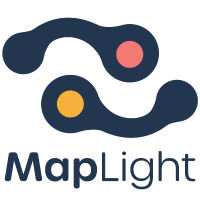预约演示
更新于:2025-09-30

MapLight Therapeutics, Inc.
更新于:2025-09-30
概览
标签
神经系统疾病
其他疾病
内分泌与代谢疾病
小分子化药
疾病领域得分
一眼洞穿机构专注的疾病领域
暂无数据
技术平台
公司药物应用最多的技术
暂无数据
靶点
公司最常开发的靶点
暂无数据
| 排名前五的药物类型 | 数量 |
|---|---|
| 小分子化药 | 5 |
关联
5
项与 MapLight Therapeutics, Inc. 相关的药物作用机制 5-HT1B receptor激动剂 [+1] |
在研适应症 |
非在研适应症- |
最高研发阶段临床2期 |
首次获批国家/地区- |
首次获批日期- |
作用机制 M1 receptor激动剂 [+1] |
非在研适应症- |
最高研发阶段临床2期 |
首次获批国家/地区- |
首次获批日期- |
作用机制 M1 receptor激动剂 [+1] |
非在研适应症- |
最高研发阶段临床1期 |
首次获批国家/地区- |
首次获批日期- |
6
项与 MapLight Therapeutics, Inc. 相关的临床试验NCT06887192
A Randomized, Double-Blind, Placebo-Controlled Study to Assess the Efficacy and Safety of ML-007C-MA for the Treatment of Hallucinations and Delusions Associated With Alzheimer's Disease Psychosis
ML-007C-MA-221 is a Phase 2, randomized, double-blind, placebo-controlled study to evaluate the efficacy and safety of ML-007C-MA in male and female participants aged 55 to 90 years with hallucinations and delusions associated with Alzheimer's Disease Psychosis (ADP).
The primary objective is to evaluate the efficacy of ML-007C-MA compared with placebo for the treatment of hallucinations and delusions associated with ADP as measured by the Neuropsychiatric Inventory-Clinician (NPI-C): Hallucinations and Delusions (H+D) score.
The primary objective is to evaluate the efficacy of ML-007C-MA compared with placebo for the treatment of hallucinations and delusions associated with ADP as measured by the Neuropsychiatric Inventory-Clinician (NPI-C): Hallucinations and Delusions (H+D) score.
开始日期2025-08-15 |
申办/合作机构 |
NCT07038876
A Randomized, Double-Blind, Placebo-Controlled Study to Assess the Efficacy, Safety, and Tolerability of Orally Administered ML-007C-MA in Inpatient Adult Participants With Schizophrenia Experiencing an Acute Exacerbation of Psychosis
ML-007C-MA-211 is a Phase 2, randomized, double-blind, placebo-controlled study to evaluate the efficacy, safety, and tolerability of orally administered ML-007C-MA in inpatient adult participants aged 18 to 64 years with schizophrenia experiencing an acute exacerbation of psychosis.
The primary objective is to evaluate the efficacy of ML-007C-MA compared with placebo in the treatment of subjects with inadequately controlled symptoms of schizophrenia as measured by the Positive and Negative Syndrome Scale (PANSS) Total Score.
The primary objective is to evaluate the efficacy of ML-007C-MA compared with placebo in the treatment of subjects with inadequately controlled symptoms of schizophrenia as measured by the Positive and Negative Syndrome Scale (PANSS) Total Score.
开始日期2025-06-27 |
申办/合作机构 |
NCT05889273
An Open-label Extension Study to Investigate Safety and Tolerability of ML-004 in Adolescents and Adults With Autism Spectrum Disorders (ASD).
ML-004-003 is a multi-center, open-label extension study that will enroll approximately 120 adolescent and adult subjects with ASD that have completed study ML-004-002. The primary objective of the study will be to evaluate the safety of ML-004 in subjects with ASD.
开始日期2023-06-01 |
申办/合作机构 |
100 项与 MapLight Therapeutics, Inc. 相关的临床结果
登录后查看更多信息
0 项与 MapLight Therapeutics, Inc. 相关的专利(医药)
登录后查看更多信息
2
项与 MapLight Therapeutics, Inc. 相关的文献(医药)2023-07-01·Molecular cell
Michael R. Green (1954–2023)
Article
作者: Roeder, Robert G ; Deibler, Sara K ; Wajapeyee, Narendra ; Rosbash, Michael ; Lillie, James W ; Jacobson, Allan ; Singer, Robert H
2023-06-01·Cell1区 · 生物学
Michael R. Green (1954–2023)
1区 · 生物学
Article
作者: Deibler, Sara K ; Roeder, Robert G ; Wajapeyee, Narendra ; Rosbash, Michael ; Singer, Robert H ; Jacobson, Allan ; Lillie, James W
62
项与 MapLight Therapeutics, Inc. 相关的新闻(医药)2025-09-27
MapLight Therapeutics 于 9 月 19 日向美国证券交易委员会(SEC)提交申请,将在纳斯达克上市,主要用于其核心候选药物 ML-007C-MA 的开发。如果 IPO 顺利进行,MapLight 将成为今年 2 月份以来第二家上市的生物科技公司,第一家 LB Pharmaceuticals 在本月早些时候上市。
专注于中枢神经系统疾病治疗的 MapLight Therapeutics 计划进行 IPO
by
TiPLab 木桃
MapLight平台包括三个关键技术:光遗传学、细胞转录组学和 STARmap,共同推动针对难治性脑部疾病和症状的首创靶向疗法的开发:
光遗传学:利用光控制大脑活动以识别与疾病相关的神经回路;
单细胞转录组学:识别疾病相关神经回路中的潜在药物靶点;
STARmap(空间转录组学技术,来自Stanford许可):可视化动物和人类脑组织中的潜在药物靶点。
来源:MapLight
在锁定药物靶点之后,运用药物化学和药物制剂方面的专业知识寻找能够与已识别靶点结合以改善功能失调的神经回路活动的候选产品。
核心候选药物 ML-007C-MA 是一种固定剂量复方:由 M1/M4 型毒蕈碱受体激动剂 ML-007 与一种外周作用的抗胆碱药(PAC,peripherally acting anticholinergic)共同配制。最初将其用于治疗精神分裂症和阿尔茨海默病相关精神病(ADP),目前处于临床II期。
近年来,毒蕈碱受体已成为治疗多种神经精神疾病(包括精神分裂症和 ADP)中的精神病和认知障碍的潜在有力治疗靶点。毒蕈碱受体是一类 G 蛋白偶联受体,由神经递质乙酰胆碱激活,其中M1 和 M4 受体亚型在脑中的表达最高,它们定位于与精神病和认知障碍有关的区域。在精神分裂症和阿尔茨海默病患者的死后脑组织中观察到毒蕈碱受体的改变。
然而,毒蕈碱受体也存在于各种外周组织中,外周毒蕈碱受体激动剂可能导致促胆碱能副作用,为此,可以将毒蕈碱激动剂与外周拮抗剂联用。
ML-007C-MA 的设计旨在激活CNS的 M1 与 M4 毒蕈碱受体以产生疗效,并通过同步激动剂与拮抗剂组分的药代动力学来减轻外周胆碱能副作用。I期临床结果已证明 ML-007C-MA具有良好的耐受性且给药便捷。
该药物的设计与BMS斥资 140 亿美元收购 Karuna Therapeutics 时关注的重点药物 Cobenfy 类似,后者已于2024年9月获得FDA的上市批准。
根据MapLight披露,截至 2025 年 6 月 30 日,与ML-007C-MA相关的专利家族主要围绕ML-007以及ML-007与PAC的组合物,结合专利检索结果,这些专利家族可能包括:
PCT/US2011/050899和PCT/US2011/020902家族涉及活性成分及其医药用途,其中包括三项已授权的美国专利保护毒蕈碱激动剂噁二唑衍生物的化合物通式,涵盖 ML-007(2031~2032年间到期);一项已授权的美国专利涵盖 ML-007 用于治疗精神分裂症和 ADP 等疾病的用途(将于 2031 年到期)。
PCT/US2022/080429则涉及 ML-007 与 PAC (fesoterodine)组合物的治疗用途(将于 2042 年到期)。
PCT/US2024/031316涉及含有 ML-007 和 PAC(fesoterodine) 的药物组合物,并限定了组合物中两种分子的含量(预计将于 2044 年到期)。
另外还有一项美国临时申请涵盖 ML-007 的盐和晶型。
* 以上文字仅为促进讨论与交流,不构成法律意见或咨询建议。
© 作为一家专业服务公司,TiPLab坚持原创的系统的研究,注重系统性知识积累与专业影响力。欢迎读者个人分享转发,各专业平台媒体如需转载请联系TiPLab获得授权。
TiPLab提供基于研究的核心知识产权服务
FTO:技术商业化实施的侵权风险防范
TiPLab通过对细分技术领域内核心技术和重要专利的长期研究,结合自身在数据检索和分析方面的专长,致力于帮助客户深入了解、积极应对潜在的专利侵权风险。
Due Diligence:商业活动中的知识产权尽职调查
在企业许可交易、融资、并购、上市等过程中,TiPLab帮助企业和投资方了解目标技术/产品的专利保护强度及产品商业化过程中潜在的专利侵权风险,从而为商业谈判和决策提供支持依据。
Patenting:全球范围内高价值专利资产的创设
TiPLab熟知全球主要国家和地区的法律实践和细分领域内的前沿技术进展情况,通过前瞻性的专利布局策略,帮助客户通过创设有价值的专利资产而获取、保持和巩固独特的竞争优势。
并购IPO临床1期
2025-09-22
Though supported by Big Pharmas like Sanofi and Novo Nordisk parent company Novo Holdings, MapLight has readily burned through heaps of cash.\n MapLight Therapeutics has illuminated a path toward an initial public offering, filing with the Securities and Exchange Commission (SEC) on Sept. 19 to be listed on the Nasdaq under the ticker symbol \"MPLT.\"Should the IPO go through, MapLight would become just the second biotech to go public since February, following in the footsteps of LB Pharmaceuticals’ approximately $285 million listing earlier this month. Like LB, MapLight is advancing a schizophrenia asset that seeks to challenge BMS’ schizophrenia med Cobenfy.MapLight’s stock exchange plans come just a couple of months after the California-based brain disease biotech raised a $372.5 million series D round. The company sought those funds primarily to support ML-007C-MA, which is currently in phase 2 trials in schizophrenia and Alzheimer’s disease psychosis.Both trials have planned readouts in 2027. The schizophrenia study launched in July, while the Alzheimer’s psychosis trial just started Sept. 17.MapLight’s other phase 2 candidate, ML-004, is being tested for social communication deficits in patients with autism spectrum disorder, with a planned completion date in the fall of 2026.The biotech also plans to complete investigational new drug application-enabling studies for two preclinical candidates next year, according to the filing, one in development for Parkinson’s disease and another for hyperactivity, impulsivity and agitation-related disorders. Though supported by Big Pharmas like Sanofi and Novo Nordisk parent company Novo Holdings, MapLight has readily burned through heaps of cash. The biotech’s current deficit is $251.6 million as of June 30, per the SEC filing, with $60.5 million on hand.“We will require substantial additional financing in addition to the proceeds of this offering to achieve our goals,” MapLight said in the filing. “Failure to obtain additional capital when needed, or on acceptable terms, could cause us to delay, limit, reduce or terminate our product development or future commercialization efforts.”

IPO临床2期
2025-09-22
iStock,
Jose Ruiz castro
MapLight Therapeutics, the second biotech to launch a Nasdaq bid this month, is a neuro-focused company advancing treatments for Alzheimer’s disease psychosis and schizophrenia.
The biopharma industry is counting its second initial public offering this month, with California-based MapLight Therapeutics announcing a Nasdaq bid with the goal of drumming up support for its pipeline of neuropsychiatric therapies.
MapLight’s initial
SEC filing
on Friday was sparse on details, though the prospectus does indicate that the company expects to complete the IPO this year.
The funds raised will help MapLight “advance the clinical development of our current programs,” the most mature of which is ML-007C-MA, an investigational agonist of the M1/M4 muscarinic receptors. The asset is being tested for Alzheimer’s disease psychosis and schizophrenia, for which respective programs are in Phase II.
With ML-007C-MA, MapLight is entering a fraught space. Leading the pack of muscarinic receptor agonists is Bristol Myers Squibb’s Cobenfy, which in September last year became the
first novel drug for schizophrenia
in more than three decades. A Phase III readout in April 2025, however, showed that Cobenfy
failed
to significantly improve symptom severity when used with atypical antipsychotics. Also with an embattled muscarinic receptor agonist is AbbVie, whose emraclidine
stumbled
in a pair of mid-stage studies last November.
MapLight’s asset, meanwhile, combines muscarinic agonism with its action as a peripheral anticholinergic. MapLight’s Phase I program for the asset, spanning 270 healthy participants given more than 1,500 doses, suggests favorable tolerability and a pharmacodynamic profile “expected to result in improvement across key symptom domains,” according to the prospectus. A topline readout in schizophrenia is expected in the back half of 2026 while data for Alzheimer’s disease psychosis is set for the second half of 2027.
MapLight is
also working on
ML-004, which is in Phase II development for autism spectrum disorder, as well as the preclinical assets ML-021 for Parkinson’s disease and ML-009 for hyperactivity/impulsivity disorder.
IPO proceeds will also fund MapLight’s working capital and other general corporate expenses. Once the IPO is complete, MapLight will trade on Nasdaq under the ticker MPLT.
With the IPO announcement, MapLight follows in the footsteps of fellow neuro-focused LB Pharma, which earlier this month ended biopharma’s
months-long IPO drought
. The biotech initially aimed for a $263.4 million raise, including underwriter option payments, but ended up
bringing home $285 million
. LB Pharma landed on Nasdaq on Sept. 11 under the tracker LBRX.
2025 has been slow for IPOs, with companies instead opting for licensing deals, mergers or private placements. The most notable IPO this year is for rising obesity star Metsera, which raised
$316 million in February
and has enjoyed a 25% surge in share price since. Maze Therapeutics, which raised
$140 million in January
, has also jumped 43% since going public.
临床2期IPO临床1期临床3期
100 项与 MapLight Therapeutics, Inc. 相关的药物交易
登录后查看更多信息
100 项与 MapLight Therapeutics, Inc. 相关的转化医学
登录后查看更多信息
组织架构
使用我们的机构树数据加速您的研究。
登录
或

管线布局
2026年03月01日管线快照
管线布局中药物为当前组织机构及其子机构作为药物机构进行统计,早期临床1期并入临床1期,临床1/2期并入临床2期,临床2/3期并入临床3期
临床前
2
1
临床1期
临床2期
2
2
其他
登录后查看更多信息
当前项目
| 药物(靶点) | 适应症 | 全球最高研发状态 |
|---|---|---|
ML-007C-MA ( M1 receptor x M4 receptor ) | 阿尔茨海默症 更多 | 临床2期 |
ML-004 ( 5-HT1B receptor x 5-HT1D receptor ) | 自闭症谱系障碍 更多 | 临床2期 |
ML-007 ( M1 receptor x M4 receptor ) | 阿尔茨海默症 更多 | 临床1期 |
ML-021 ( M4 receptor ) | 帕金森病 更多 | 临床前 |
ML-009 ( GPR52 ) | 运动失调 更多 | 临床前 |
登录后查看更多信息
药物交易
使用我们的药物交易数据加速您的研究。
登录
或

转化医学
使用我们的转化医学数据加速您的研究。
登录
或

营收
使用 Synapse 探索超过 36 万个组织的财务状况。
登录
或

科研基金(NIH)
访问超过 200 万项资助和基金信息,以提升您的研究之旅。
登录
或

投资
深入了解从初创企业到成熟企业的最新公司投资动态。
登录
或

融资
发掘融资趋势以验证和推进您的投资机会。
登录
或

生物医药百科问答
全新生物医药AI Agent 覆盖科研全链路,让突破性发现快人一步
立即开始免费试用!
智慧芽新药情报库是智慧芽专为生命科学人士构建的基于AI的创新药情报平台,助您全方位提升您的研发与决策效率。
立即开始数据试用!
智慧芽新药库数据也通过智慧芽数据服务平台,以API或者数据包形式对外开放,助您更加充分利用智慧芽新药情报信息。
生物序列数据库
生物药研发创新
免费使用
化学结构数据库
小分子化药研发创新
免费使用